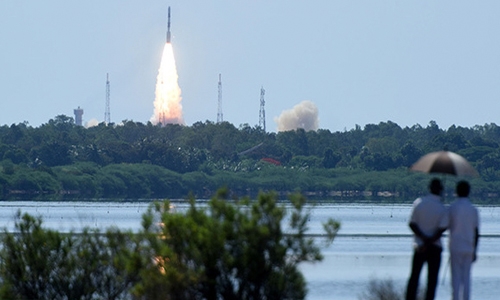India launches 20 satellites in single mission
Sriharikota : India successfully launched a rocket carrying 20 satellites on Wednesday, setting a new national record as its famously frugal space agency looks to grab a larger slice of the lucrative commercial space market.
The rocket blasted off from the southern spaceport of Sriharikota carrying satellites from the US, Germany, Canada and Indonesia, the most in a single Indian mission.
Most of the satellites are intended to observe and measure the Earth's atmosphere, while another aims to provide services for amateur radio operators.
"Each of these small objects that you are putting into space will carry out their own activity, which is independent of the other, and each of them will live a wonderful life for a finite period," Indian Space Research Organisation (ISRO) chairman A.S Kiran Kumar told the NDTV news network.
The business of putting commercial satellites into space for a fee is growing as phone, Internet and other companies as well as countries seek greater and more high-tech communications.
India is competing with other international players for a greater share of that launch market, and is known for its low-cost space programme.
Among the 20 satellites launched on Wednesday were 13 from the US including one from a Google-owned company and two from Indian universities.
Prime Minister Narendra Modi said the launch was a "monumental accomplishment", although it trails Russia's 33 record launched in 2014 and NASA's haul of 29 the year before.
"Our space programme has time and again shown the transformative potential of science & technology in people's lives," Modi tweeted.
Expert Ajay Lele said the latest test was a "quantum jump" for India which has "made its presence felt even more now by displaying its promising market potential".
"India is attracting key foreign players, most importantly the US, in the space market thanks to its cost-effectiveness and credibility," said Lele, a senior fellow at the New Delhi-based Institute for Defence Studies and Analyses.
Lele said he expected ISRO to form a public-private partnership to outsource its growing commercial activity in another three to four years.
Related Posts

